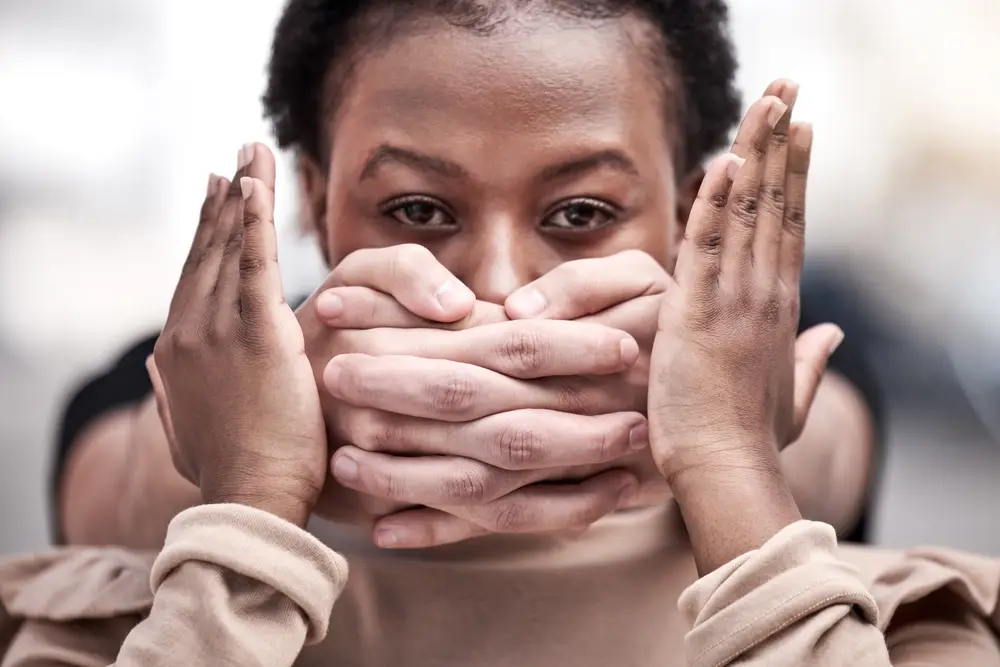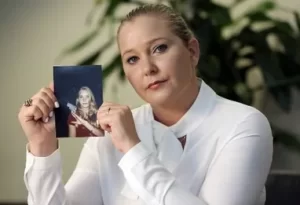In an opinion piece for The Guardian titled “The Problem is far Bigger than Jeffrey Epstein,” writer Rebecca Solnit paints a recent picture of some of the biggest sexual abuse cases in the news, including those involving Jeffrey Epstein, Sean Combs, Harvey Weinstein, R. Kelly, and Donald Trump, and explains why treating them as separate scandals obscures the real issue.
According to Solnit, these cases are not isolated horrors. They are symptoms of a global, ongoing system of violence against women, upheld by wealth, power, and social institutions.
Solnit begins with the 2 July guilty verdict against music mogul Sean Combs, accused of horrific sexual abuse of women, reportedly aided by his staff and financial power. Combs also faces multiple civil suits, including allegations involving minors. But the story was quickly overshadowed by renewed media focus on Jeffrey Epstein, whose decades of trafficking and abuse, supported by banks, staff, and elite connections, dominated headlines once again.
She then turns to the June retrial verdict against disgraced movie producer Harvey Weinstein, found guilty once more for decades of abuse enabled by other power probers. Solnit also references the 2024 appellate decision upholding singer R. Kelly’s 30-year sentence for racketeering and sex trafficking, alongside a separate 20-year sentence for child abuse imagery and enticement. Like Combs and Weinstein, R. Kelly benefited from extensive support systems and deep pockets that shielded him from justice for years.
Solnit explains that one reason the epidemic of violence against women remains unacknowledged is because these cases are typically discussed individually. The public treats them as shocking exceptions rather than signs of a widespread pattern. She argues that violence against women is constant and global, not an isolated event. And yet, both the legal system and broader society have often protected abusers and normalized misogynistic violence.
To illustrate the disconnect, Solnit offers a metaphor: imagine we had no word for cancer and didn’t recognize its patterns; only a series of strange, deadly tumors with no apparent link. Without shared language or understanding, there could be no diagnosis, treatment, or search for root causes. Feminism, she writes, has offered a diagnosis for centuries: misogyny, and the violence that upholds it. But the media’s “one bad man” narratives avoid this by treating the common as rare.
The only unusual aspect of Epstein’s case, Solnit argues, is its vast scale and the complexity of the systems he used, including financial, transportation, and legal, to traffic, abuse, and silence his victims. Otherwise, his crimes were horrifyingly ordinary. In the U.S., someone is raped every 68 seconds. A woman is beaten by a partner every nine seconds. More men than women are murdered each year, but over half of all female homicide victims are killed by current or former intimate partners, according to the CDC. Globally, a woman or girl is murdered by a partner or family member every 10 minutes. A significant percentage of human trafficking victims are women and girls exploited for sex.
Solnit points out that she could have just as easily begun her piece with the hundreds of sexual abuse cases tied to the Southern Baptist Convention. In 2022, the Convention’s Executive Committee mishandled allegations of sex abuse, stonewalled numerous survivors and prioritized protecting the SBC from liability. She also cites the allegations against former New York Governor Andrew Cuomo, who was accused of sexual harassment and retaliated against those who spoke up. Similar revelations continue to emerge from residential schools for Indigenous children in both the U.S. and Canada.
The notion that releasing Epstein’s files might reveal whether Donald Trump is a sexual predator, Solnit says, is absurd. Trump was found liable in 2023 for sexually assaulting writer E. Jean Carroll and has been accused of sexual misconduct by numerous other women. His behavior toward teen beauty pageant contestants he managed, and his association with Epstein, are well-documented. Like others mentioned in the piece, Trump has benefitted from a powerful protection apparatus, including government institutions.
According to Solnit, even the U.S. federal government appears to be working to shield Trump from scrutiny. She cites The Hill reporting that House Speaker Mike Johnson has stalled efforts to force a vote on releasing the Epstein files. Meanwhile, Senator Dick Durbin alleges that Attorney General Pam Bondi pressured roughly 1,000 FBI employees to comb through tens of thousands of Epstein-related documents and flag any mention of Trump. The sheer scale of the effort, Solnit argues, only reinforces the sense that there’s something to hide.
But beyond any single person or scandal, Solnit says, society itself is complicit in hiding the real story: this violence is everywhere, and it shapes women’s daily lives. The constant threat affects how women dress, where they go, what jobs they take, and whether they speak up. A few men may commit the acts, but the entire system helps ensure that women remain vulnerable and men remain empowered. The benefits of this imbalance, whether subtle or overt, extend to all men.
Solnit concludes that focusing on individual predators won’t solve the root problem. Police and prisons alone won’t fix a culture built on inequality and exploitation. True change requires dismantling the conditions that make gender-based violence so widespread. While she supports releasing the Epstein files, what’s really needed is a systemic reckoning and the will to change the rules that have enabled this violence across continents and centuries.
If you or someone you love has experienced sexual abuse within a church, school, or any trusted institution, know that you’re not alone. Learn more about your legal rights and options by visiting our page on institutional sexual abuse lawsuits.




